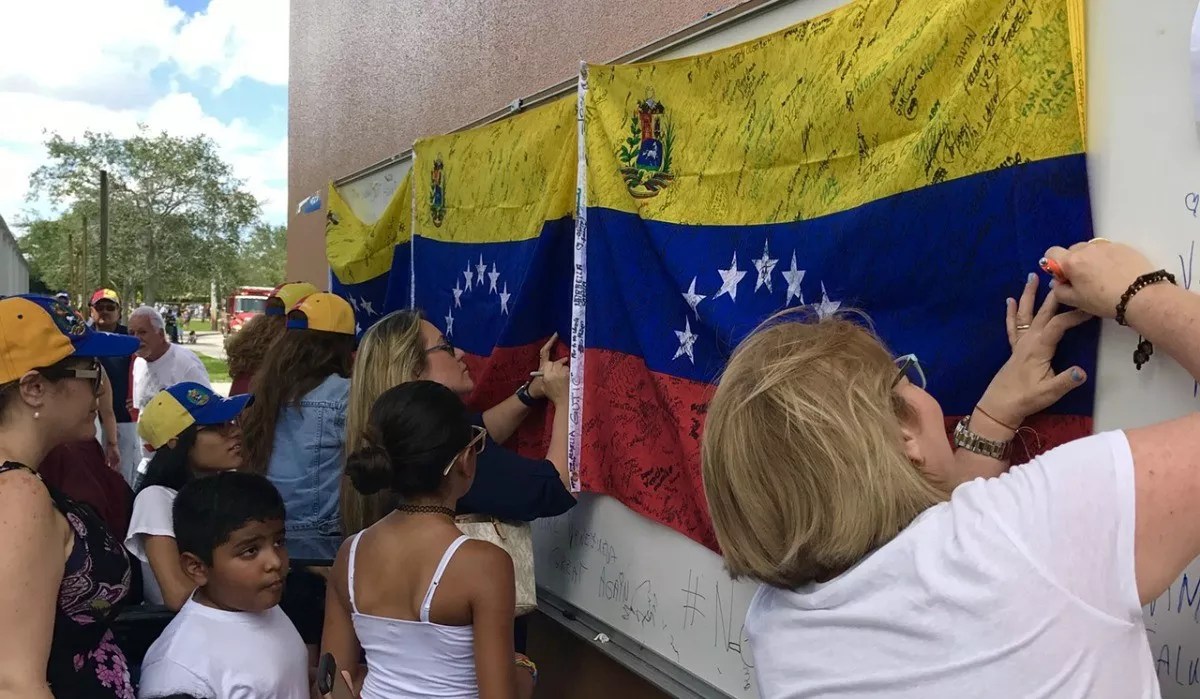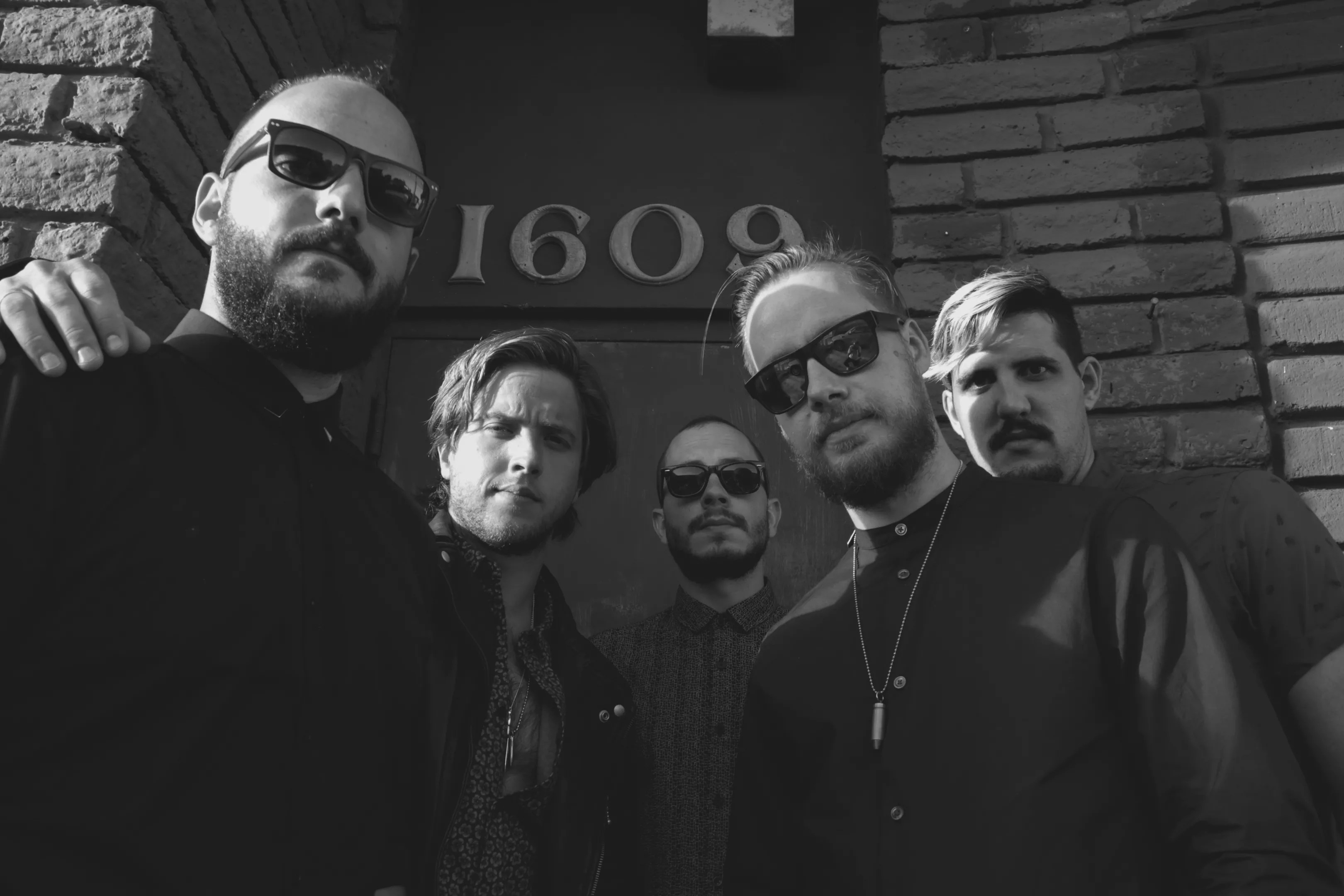
Photo by Alona Abbady Martinez

Audio By Carbonatix
Miami has famously become a refuge for Venezuelans fleeing the crisis in the once-prosperous South American nation. For most expatriates, what was once unimaginable – beginning a new life in a new country – became necessary when food and safety were no longer certain back home.
For Venezuelan musicians, migrating to the United States has also meant an opportunity to continue creating and playing music. Live music is an overlooked casualty in a collapsing society where it’s difficult to find milk, but for these artists, being able to create is as important as food and water.
Bassist Adrian Salas of the Latin Grammy-nominated band Viniloversus enjoyed a sizable following and critical acclaim with his band before the advent of the crisis. After the political climate made the future uncertain, the band went on hiatus to pursue other artistic projects. Now, he says, they find themselves in much the same position they were 13 years ago when they began playing music.
Though they face the same challenges of most American rock bands, the situation back home was unsustainable, Salas says. “It was like a cocktail of reasons that made us leave. You couldn’t sell tickets. People weren’t going to bars. You couldn’t record albums. If you were going to promote something, you had to check Twitter, Facebook, and Instagram first, because you didn’t know if a protest had gone wrong and students had been killed or if you had to make a statement as an artist.”
Jose Vinicio Adames plays guitar in the local psych-rock band Jaialai. He echoes many of Salas’ sentiments. Musicians are nocturnal creatures: Without the guarantee of safety, nightlife ceases to exist, and musicians lose their audience.
Five months before dictator Hugo Chávez died, Adames left Venezuela to study music at Lindenwood University in St. Charles, Missouri. While Adames was away, he closely followed the situation back home through social media. His friends were kidnapped. His brother’s car was hijacked under threat of injury on the way back from visiting a cemetery.

Viniloversus
Courtesy photo
Adames’ mother still lives in Venezuela, so he has visited a couple of times since leaving for school and relocating to Miami. Curfews, he says, are necessary to ensure safety from the danger his friends and brother have encountered, but those curfews cripple any chance of a live music scene where artists can thrive. “Right now there’s no scene. It’s very hard to get shows. It’s very hard to get venues; then you have a protest and shows cancelled,” he says.
“I tried to contact my friends [to go out]. I remember it was like 7 p.m., and no one wanted to go out. It’s way too dangerous. I was driving there at 6 p.m., and there was nobody in the streets. Nobody. It was a 30-minute drive, and I saw ten cars. They encourage you to go straight to where you’re going and leave in the morning.”
He also found, as many Americans are now learning on a less perilous scale, that it’s difficult to talk about anything else when the political situation in your country is deteriorating. “Music is a way of escaping,” he says. “It’s also a way of communicating things and expressing yourself, but every time you went to a show, the band was speaking about all the things that were happening. So it got very tense.”
Julio Briceño, singer of the popular Venezuelan band Los Amigos Invisibles, grappled with how to address the worsening situation in his homeland from the platform of international recognizability. The Latin Grammy-winning band left Venezuela in 2001, after Chávez ascended to power but before his country’s rapid descent into chaos. “I can’t say we saw this moral political and social catastrophe coming in Venezuela,” he says. Nevertheless, the members of Los Amigos decided to relocate to New York to pursue careers in music. It was already becoming difficult to get passports and visas, Briceño says. “It wasn’t easy to coordinate concert logistics, especially from outside of the country.”

Jaialai
Photo by Mickey Humo
During annual visits back home, Los Amigos witnessed the effects of the dying nightlife. “Over the last few years, we were losing more and more shows [in Venezuela] every year,” Briceño says. “Last year there was one; the year before there were four; before that year there were six. The amount of shows is what’s changed the most. One of the most beautiful things about live music is that people go to disconnect from reality. So the audience itself hasn’t changed much… but what we did see was an audience, especially after 5 or 6 p.m. that lives with a curfew, completely in the dark.”
Salas and Adames sound optimistic about the second chance the U.S. has afforded their music, but the concern for their friends and families back home never subsides. Adames is especially excited about the recent revival and expansion of Miami’s music scene, citing Bumblefest and III Points as indicators of South Florida’s thriving interest in live music. Salas channeled Viniloversus’ struggles into the band’s latest English-language album, Days of Exile.
Having seen the other side of success outside Venezuela, Briceño offers advice to musicians who have left their countries to pursue music internationally. And it’s not much different from the advice you’d expect to hear for any other musician hoping to make art into a career. Save as much money as possible and take your instrument, he says, but know that you’ll have to make a living at something other than music. You’ll need a day job. “Many people think Los Amigos Invisibles have it made, but here we are playing every day. This weekend we played in Mexico, and we will head on a tour in California this month.”